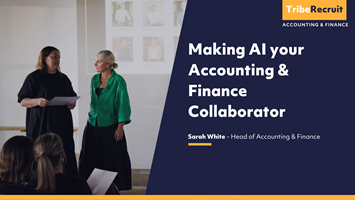In this month's featured article in NZ Local Government Magazine, Tribes David Hammond focuses on the noticeable uptake of governance review and capability-building work in 2022.
![]()
The spotlight has moved to governance in asking why organisations are not succeeding. I introduce three points here that could have improved the governance outcomes from Day-1 in many Council Controlled Organisations (CCOs) and other Council Organisations (COs).
There has never been a more important time in the appointment of the right governance expertise across all sectors.
We entered 2023 with council governance challenges including the uncertainty of Three Waters with a high risk of alienating communities, the management of at-risk infrastructure asset bases, the delivery of social housing in a shortage, transitioning a sceptical public to less-than-ideal public transportation systems, and overseeing efforts to kick-start a local economy post-Covid. All of this requires the highest expertise in governance, and much of this is to be drawn on from outside the council table.
Before beginning on these three points, I acknowledge that there can be an issue of trust with unelected governance appointed over critical service and asset delivery. There is also a flip-side reality that the election process delivers governance of variable experience.
External governance expertise on Council entities may not be desirable but is essential. However,I am not convinced that the problem of governance is just through poor appointments. The three areas I saw driving my governance review work in 2023 are as follows:
Clarity of purpose and reporting
The better the clarity of purpose of the CCO or CO, its alignment to the Strategic Plan, and the clearer the picture of what success looks like, the more likely the organisation is to succeed. The beginning is not the Letter of Intent. It is to clarify purpose, success and how to measure and report on success. That framework needs to be agreed by Council before any appointment process of Board Members. That then flows into the Letter of Intent. It also flows into the Role Descriptions of Board Chair and Board Members before the recruitment process begins.
The chief executive relationship
A lot of my confidential work is in fixing-up very poor chief executive KPIs and putting sound frameworks around the chief executive’s employment relationship.
KPI development in the local government sector is very poorly done. I have seen the range from overly complex KPIs that need a PhD to read, to council chief executives with more than 20 KPIs ranging from potholes to strategic.
Every council, CCO or CO should have a Chief Executive Performance, Remuneration and Professional Development Policy so that the chief executive has confidence over how they will be paid, assessed and developed.
This is the key to retaining and attracting top talent in a highly competitive recruitment market. The better this framework, the better they will perform for you. It is no exaggeration to stress the importance of this in organisation success.
The Skills Matrix
Every Board may have a mix of appointed and external Members. From the beginning should be developed a Board Members’ Skills Matrix, linked to the Strategic Plan, and updated with each new Strategic Plan. This has to be done before the appointment of any Board Members. Before a CCO or CO is handed over to a new Chair, the Council needs to be convinced that these structures are in place, and the Board Chair is competent in this area of their leadership. This Skills Matrix answers the key question of what competencies are needed on the Board to achieve the Plan, and how many Board Members need to be appointed with each of those skills.
This is the platform of conversation about who the elected Members should be in the CCO or CO, and what skills are needed by external appointees. The old approach of ‘tapping people on the shoulder who you know’ has passed its use-by-date. At the same time, a Succession Plan should be done so that the Board is aware of when key skills are leaving the Board and pre-preparation can be made for replacement.
In 2023 my prediction is that the crisis of governance, and my workload in this area, will both continue to increase as governance across the country realises that they need a far more structured and planned approach to achieve success.
How accountable to the CCO should Boards be?
In my work across commercial, public and Not-For-Profit sectors local government stands alone in the expectations of transparency and accountability locally.
There used to be power companies and others in that same waka, but today, local government stands alone. In my view the broader public sector is not as transparent and accountable as local government is locally.
ALL OF THIS REQUIRES THE HIGHEST EXPERTISE IN GOVERNANCE, AND MUCH OF THIS IS TO BE DRAWN ON FROM OUTSIDE THE COUNCIL TABLE.
For good or otherwise, local government is the last bastion of this degree of transparency and accountability, and the public is not willing to give ground on this. This has implications for the front-end design of CCOs.
If I am pressed for a view on this, I think the degree of transparency is a significant handbrake on operations, and the transparency is being weaponised in the public domain. However until councils set-up the right framework of structure and reporting consistently – as I outline in this article – then I would prefer the status quo of transparency.
I have seen too many CCO and CO structures established by staff and consultants who do not have the right level of expertise to do so.
At the beginning of this article I raised the question about the composition of elected and non-elected Board Members of a CCO. There are three options.
A CCO Board of all elected members brings straight-line accountability to the public for the CCO. However, the composition of the Board would probably not achieve the Skills Matrix by just elected members alone.
Surely the public deserve the most expertise available around that Board table? A second option is mixed elected councillors and external Board Members. This is much more common. It brings in commercial sector and other industry-specific skills needed on the CCO, and is often chaired by a professional Director.
Elected Members bring the council context of politics and can open doors internally to the right staff and represent the CCO’s views well at the council table.
A third option is a Board of all external appointees which brings strong commercial and sector expertise that the CCO is operating in. However, they can lack the straight-line accountability back to ratepayers. Board Members can fool themselves that they can operate independently from the ratepaying public, and these Boards may be criticised as being stacked with political favourites. LG




